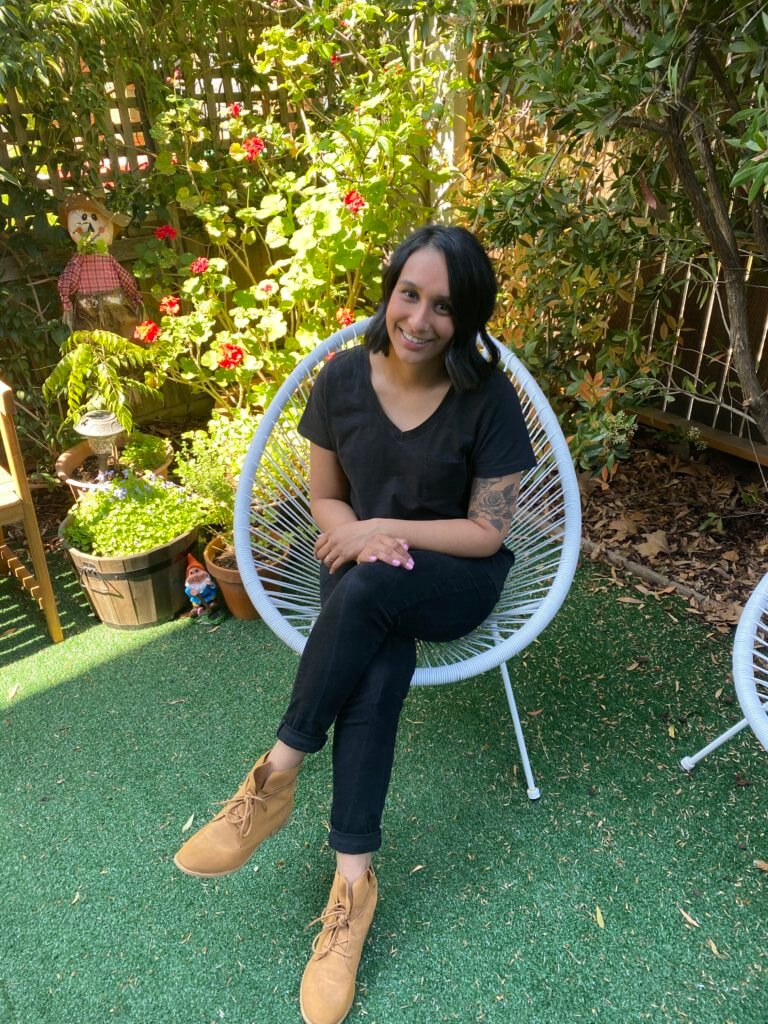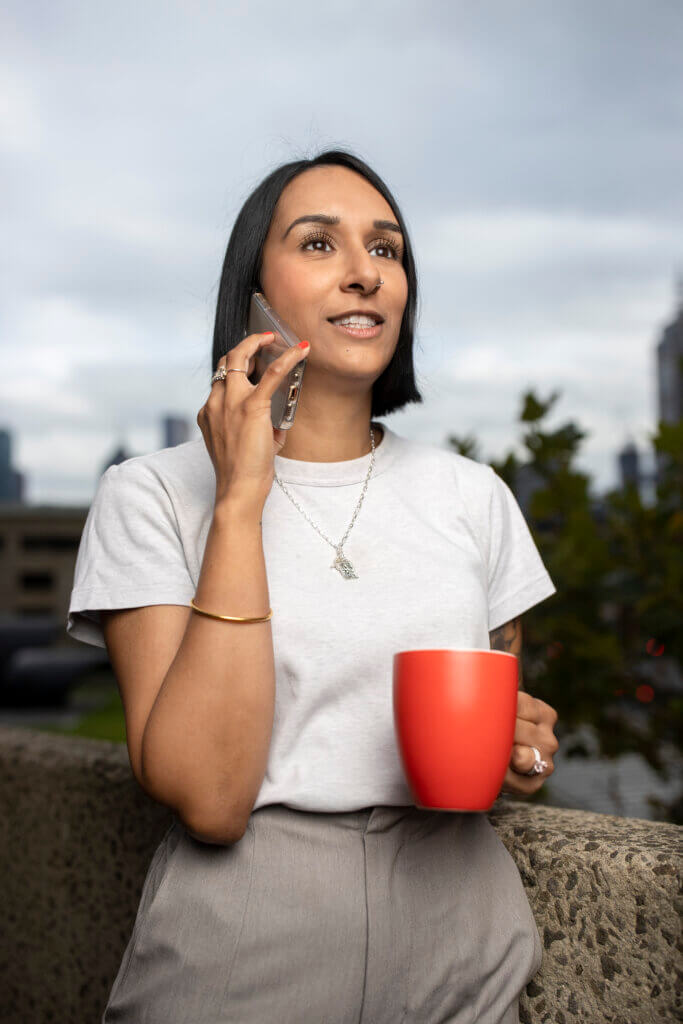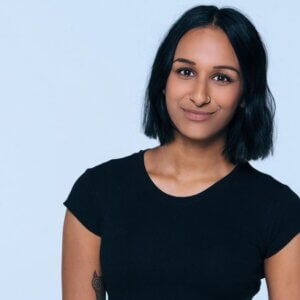In recent weeks, many of us have watched on with disgust as the ALP have ousted one of their own for simply applying a principled approach. The entire episode with what has happened to Senator Fatima Payman since has brought up the ever present question of how racism and whitewashed nationalism play into the concept of what it means to be ‘Australian’. As migrants and people of colour who also happen to live in this country, we are Australians as long as we know our place. As long as we are grateful, but don’t have any dissenting views with the white majority. I am Australian as long as I tow the party line. As long as I don’t rock the boat. As long as I don’t have an independent thought; as long as I don’t call the country out for its covert, underlying and insidious racism.

Sabene Gomes
You only have to look as far as Yasmin Abdel-Magied to see the effects of what speaking up meant in the context of her ‘Australian-ness’. In 2017, on Anzac Day, Yasmin posted a tweet which simply stated ‘Lest.We.Forget. – Manus, Nauru, Syria, Palestine. Her post was meant to bring awareness to ongoing man-made tragedies and injustices. The response directed her way was a tidal wave of daily death threats and videos of beheadings and rapes which were obviously meant to intimidate her into silence. Yasmin Abdel-Magied is a visibly Muslim woman, a hijabi and the daughter of Sudanese migrants. For many of those who attacked her online, the thought of ‘how dare she be so ungrateful’ and ‘if she doesn’t like it she can go back to where she came from’ rang ridiculously true. Yasmin Abdel-Magied has since fled Australia citing the overwhelming hate she received as the trigger, even after issuing an apology for offending anyone. In the years since she has identified that she “inadvertently challenges those who feel entitled to their privilege and status”; and it is this very concept which sparks discomfort, and the underlying bias which sits behind it that meant she was subjected to the hate that received.
The concept of unyielding benevolence is also a very important one when attempting to understand what defines a person of colour’s inherent ‘Australian-ness’. We must always be affable, not disrupt society too much and speak only of our deep gratitude to this country for saving us from our third world nightmares. We are encouraged to cook our food, share this with our wider communities but not go so far as expressing independent thoughts and free speech which make the white majority feel uncomfortable. As a person of colour, and more specifically, a woman of colour, I have to think about the potential ramifications and backlash I might receive if I say something that the white majority in this country don’t agree with.
Personally, I speak openly about Palestine, about the genocide in Gaza but in saying this, I still keep my social media profiles on private as I’m unprepared to have to deal with the hate I would receive from random people online. Deep down I’m not scared that I’ll have to justify my views, I’m instead nervous of the hate I’ll receive which is tinged with racism and xenophobia. I can’t be bothered qualifying my stance and at the same time putting in a disclaimer that I actually do love this country and I am forever grateful to it. As long as I continue to praise this country, then my status as an Australian is all good but it’s apparently written down in lore somewhere that the second I start to call out structural racism, injustice or colonial oppression, then this country doesn’t want me anymore.

Sabene Gomes
So what does it mean to be Australian? Does my skin colour and my ‘exotic’ ancestry quantify my rights when it comes to freedom of speech? Does it limit my ability to speak up when I believe something to be wrong?
I want to feel safe enough to express myself openly without the threat of racist backlash. Isn’t that what we pride ourselves on so greatly anyway in this country? Aren’t the democratic freedoms to practise freedom of speech universal, even if it makes other people uncomfortable? It’s been painful to watch what has happened to Senator Fatima Payman, especially in light of how quickly the media and her parliamentary peers have turned on her. The focus on her status as refugee, a hijabi and media outlets digging into every single transaction she makes and questioning her identity as an Australian has been nothing short of embarrassing. It’s been disturbing to watch that the go to tool used to discredit people of colour and migrants in this country is to question their commitment to being ‘Australian’. We are a place in time at the moment where a deep reckoning is needed to unpack the structural racism which sits just below the surface.
As the First Dog on the Moon so aptly identified through ‘The Unwritten Rules of Multiculturalism as explained by an older white man’: migrants and people of colour must always display the concept of never ending gratitude. We must never show evidence of agency or independent thought outside the acceptable mainstream. We must never undermine the white, colonial, eurocentric fabric of society. As long as we commit to these principles, we’re good to go. If we don’t, well then we should just go back to where we came from right?!

Sabene is an intersectional feminist, humanitarian, writer and blogger. She is a first generation Sri Lankan/Australian whose family migrated to Australia when she was 2 years old. Sabene is passionate about gender equality, disability inclusion, poverty reduction, social justice and decolonisation. As a blogger, she runs her own social commentary blog titled ‘I Blog for Change’; and she serves as the Founder and Editor of SpeakYoTruth, an online publication aimed at elevating the voices of women of colour to enable a safe space for them to tell their own stories.




